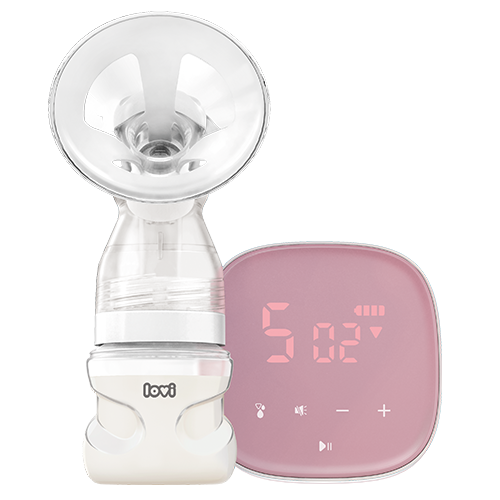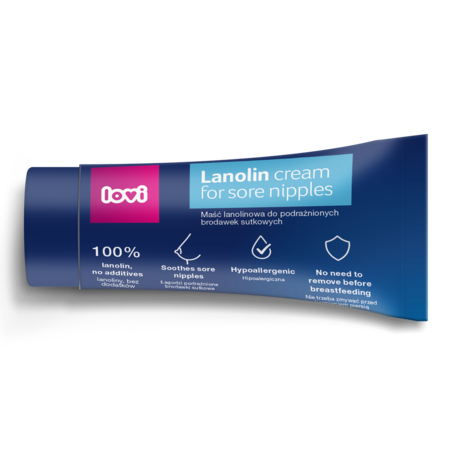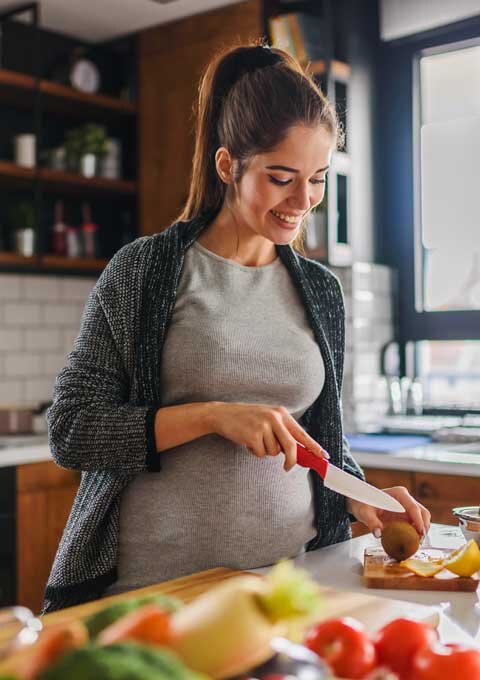A healthy diet during pregnancy is incredibly important, as what you eat can directly affect your baby’s development. There are many myths surrounding foods that should be avoided during pregnancy. Today, we’ll guide you on what you should and shouldn’t eat during your pregnancy.
Expert Consultation: Karolina Wyrembek-Urban – Midwife, Lactation Coach
What Not to Eat During Pregnancy
Pregnancy is a time that requires some changes to your diet. While these changes aren’t usually drastic, it’s important to be aware of the key recommendations.
Alcohol
The first thing that must be completely eliminated from your diet is alcohol. It has proven harmful effects on the developing baby, and even small amounts can pose risks, regardless of which stage of pregnancy you're in. Consuming alcohol can lead to miscarriage, premature birth, foetal alcohol syndrome (FAS), developmental abnormalities, physical and mental growth delays, and many other serious conditions. The effects of drinking alcohol during pregnancy are irreversible. Ideally, women should stop consuming alcohol even while trying to conceive.
Raw Meat
Your pregnancy diet should also exclude raw meat. This means avoiding foods like steak tartare, rare steaks, and Parma ham. Certain soft cheeses, such as blue cheese, aged cheese, and smoked cheeses should also be avoided as they may contain unpasteurised milk, which is unsafe during pregnancy. Additionally, stay away from raw fish, such as sushi and oysters. Liver can also be risky when eaten in large amounts, as it contains high levels of vitamin A, which can negatively affect the baby’s development.
Caffeine
There are some foods and drinks that should be limited during pregnancy, such as coffee due to its caffeine content. It’s generally recommended to limit caffeine intake to around 200mg per day, which is about two cups of coffee, or you could opt for decaf as a safer choice.

Fast Food
You should also limit your intake of fast food during pregnancy, as it tends to be high in unhealthy fats and low in nutritional value. As a result, it shouldn’t form the basis of your pregnancy diet.
The same applies to sweets and salty snacks. Like fast food, these options provide little nutritional benefit and are high in empty calories. Many of these snacks also contain excessive amounts of sugar and salt.
The same concerns extend to carbonated drinks, particularly energy drinks and those containing caffeine. In addition to high sugar content, preservatives, and artificial colourings, they often contain caffeine levels that can exceed the recommended daily limits.
What to Eat During Pregnancy?
A pregnancy diet should primarily be diverse and balanced. A well-balanced diet includes carbohydrates, proteins, and fats, and it should provide the appropriate caloric intake. In the second trimester, your caloric needs increase by about 360 kcal per day, and by 475 kcal per day in the third trimester, compared to your baseline requirements.
During pregnancy, it is important to ensure you are getting enough fruits and vegetables, as these provide essential vitamins and fibre. Your diet should also include whole grains, dairy products, and lean meats. Staying hydrated is crucial, so aim to drink around 2 litres of water each day. Make sure to consume a variety of meals at regular intervals.
Try lanolin ointment during pregnancy and breastfeeding!

Pregnancy Diet – Key Principles
There isn’t a one-size-fits-all pregnancy diet, but there are several important guidelines to follow.
First and foremost, always wash fruits and vegetables, as they can harbour bacteria or parasites that may be harmful to you. It’s also essential to check expiration and use-by dates, as consuming spoiled products can lead to food poisoning, which can be dangerous for pregnant women.
During pregnancy, it’s wise to avoid trying exotic dishes that you’ve never eaten before. While they may not necessarily be harmful, you could experience an allergic reaction to new ingredients. Similarly, you should steer clear of foods to which you are allergic or intolerant. If you don't have any diagnosed food sensitivities, there’s no need to follow an elimination diet.
A pregnancy diet also involves supplementation. However, it’s important to remember that too much of certain vitamins can be as dangerous as having too little, so you shouldn’t take any supplements without consulting your healthcare provider.
Most pregnant women strive to maintain a healthy diet, which is certainly the right approach. However, it’s worth noting that indulging in fast food or a chocolate bar occasionally won’t negatively impact your pregnancy. Therefore, it’s perfectly fine to treat yourself to something less healthy from time to time. A sensible diet includes minor deviations from daily rules and avoids strict lists of forbidden foods (as long as they are safe for the baby).
Expert Consultation: Karolina Urban-Wyrembek – Midwife, Lactation Coach
